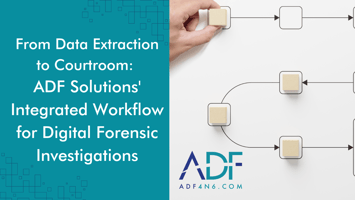Digital forensics plays a crucial role in modern-day investigations, especially in the realm of...
The Future of Digital Forensic Software Advancements and Innovations
Digital forensic software developers need to keep up with new advancements. Investigators need digital forensic tools to keep up with current and future technology. Forensic investigators face the challenge of evolving threats and increasing data volumes.
Organizations need digital forensic software to keep up with technological advancements in data storage, cyber crimes, and cybersecurity. Here are some digital forensic advancements and innovations shaping the future of digital forensic software that you should look out for:
- Artificial Intelligence and Machine Learning: Artificial Intelligence (AI) and Machine Learning (ML) are revolutionizing the field of digital forensics. These technologies enable software to process vast amounts of data, detect patterns, and predict potential threats with greater accuracy and speed. AI-powered tools can perform automated data categorization, anomaly detection, and even recognize previously unknown digital artifacts.
AI can find keywords, patterns, and sentiment in large amounts of text data, like chat logs or emails. AI and ML techniques do various tasks in digital forensics, like analyzing images, audio, text, and behavior[1]. By reducing manual labor and expediting investigations, AI and ML are becoming essential components of the digital forensic toolkit. - Cloud Forensics: Data migration to cloud storage and services has changed the landscape of digital investigations. Cloud-based digital forensics involves collecting and analyzing data from cloud platforms to reconstruct events and uncover digital evidence [1]. In the future, digital forensic software will improve its ability to collect data from the cloud. Additionally, it will become more effective in decrypting and analyzing cloud services.
- Forensic Readiness: Forensic readiness is the preparation of an organization or environment for the possibility of a digital forensic investigation in the event of a security incident or cybercrime [1]. Forensic readiness ensures that policies, tools, and procedures are in place to enable the rapid collection and analysis of digital evidence. Trained personnel can respond rapidly to a security incident. Forensic readiness is a proactive approach and reduces the time and costs of digital forensic investigations.
- Internet of Things (IoT) Forensics: The proliferation of IoT systems has opened up new avenues for cybercriminals. IoT forensics involves the extraction and analysis of data from interconnected devices like smart appliances, wearables, and home automation systems. Schools, offices, hospitals, and homes are becoming smart environments.
Apps on smartphones let users control devices remotely, like lights, heating, and security systems. Innovations in digital forensic software will focus on IoT data acquisition, artifact analysis, and integrating IoT-related data with other pieces of evidence. - Peer-to-Peer (P2P): Peer-to-peer overlay networks are distributed systems that consist of interconnected nodes that self-organize into an arrangement of networks [2]. P2P networks accommodate a transient population of nodes while maintaining connectivity and performance. P2P networks have issues with security, privacy, and piracy. Methods are constantly evolving to detect threats in these P2P networks.
The future of digital forensic software looks bright with advancements in AI, ML, automation, and cybersecurity measures. These innovations will empower investigators to handle the challenges of modern-day cybercrime effectively. Forensic investigators can stay prepared by staying updated with new technologies and utilizing advanced tools. This enables them to protect digital assets, find evidence, and apprehend cybercriminals. As technology continues to evolve, digital forensics will remain at the forefront of the fight against cyber crimes.





